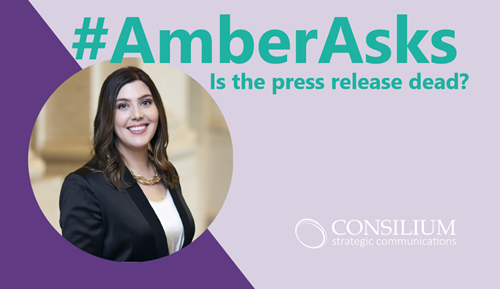
According to recent research around 50% of Americans get their news from social media and we can probably assume that this figure is pretty similar in most western countries today.
With such substantial numbers staying up to date on current news from various online feeds, is it time to call an end to the humble press release?
According to legend the press release was born in 1906 when the Pennsylvania Railroad was dealing with a crisis: 50 people had sadly died in a train crash. The publicity expert Ivy Lee, who was advising them at the time, convinced his client to issue a statement to communicate what had happened. The New York Times was said to have been so impressed with the release that it was printed verbatim.
Fast forward 115 years and the press release still forms the backbone of many companies’ communications campaigns, especially as it is mandated as the way to communicate material information for public companies. However, long gone are the days when a single press release is so well-received by high quality news outlets as the Pennsylvania Railroad’s was.
So should the press release remain the bastion of company communication? Especially when attention spans are shorter than ever and journalists’ inboxes are exploding with them? In a fast moving world of many multi-media platforms, can’t some other medium convey the facts more efficiently, resulting in the news being consumed in a way that apparently half of us already want?
Yes it can and does, from blog posts, to short company news videos, from Tweets to Reddit posts, BUT it is the ever enduring press release that remains the authoritative source from which most of these other communications flow. Especially in our world, where scientific subject matter can be incredibly complex and highly regulated. The press release acts as the irreplaceable manifesto to which other conduits of news generally refer.
A well written press release can convey the complete landscape for the news, not only the individual facts. How the company sees the news in the context of its business and the wider market can be conveyed professionally in a press release in a way that a short LinkedIn post or blog post can’t achieve because the tone would be wrong and it would be too long. Moreover, despite its relatively ancient existence, the press release can still assist with SEO and keyword ranking.
So for me the press release is far from dead, but its days as the sole form of communication are most definitely numbered. For the most compelling communications campaign, the press release must sit amongst a multitude of communication tools which are intelligently utilised by a proactive communications team who can leverage personal relationships and expertise to make the news go far and wide.
Yes we can all benefit from trying to convey news in the most clear and succinct form possible, but equally we should not sacrifice the context and nuance that only a press release can convey.



